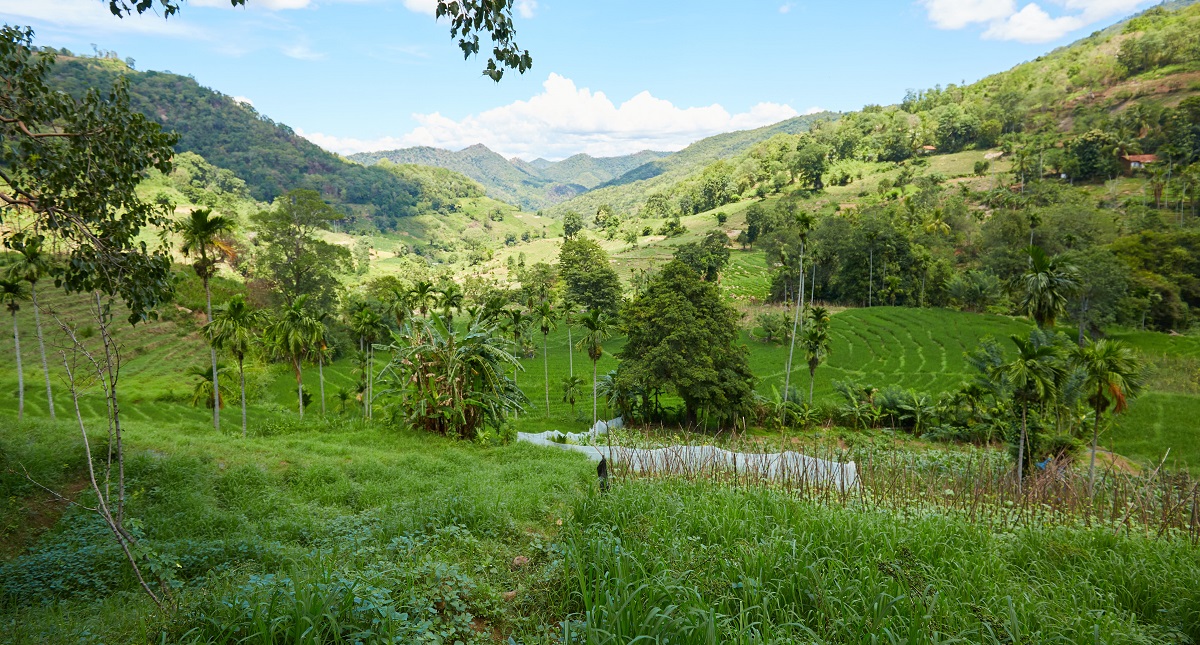Project description:
With climate change threatening the agriculture sectors, livelihoods and food
security, there is an urgent need for scaled action to cope with climate-related impacts. In response to that, SCALA supports 12 countries in Africa, Asia and Latin America to both build adaptive capacity and to implement low emission priorities in agriculture and land use. The programme uses a multi-stakeholder approach, harnessing strong engagement from the private sector and key national institutions. National activities focus on strengthening policies, appraising and adopting innovative approaches, as well as removing key barriers related to information gaps, governance, finance, gender mainstreaming and integrated monitoring and reporting. The ultimate goal is for countries to turn agricultural related priorities laid out in their National Adaptation Plans (NAPs) and Nationally Determined Contributions (NDCs) into action.
State of implementation/results:
- Most recent update of SCALA programme can be found here: https://ikicolombia.com/sobre-el-programa-scala/
- The SCALA programme provides support on agriculture and land use at country and at global level to:
- Identify and appraise transformative climate actions.
- In 2021 at global level, a climate action review matrix (CAR) was developed to help countries verify transformative potential of climate solutions and systems-level assessments for strengthening the evidence base to design climate solutions; and creating dialogue spaces with all stakeholders, including the private sector, to ensure their adoption and scale up their implementation..
At country level, in 2021 and 2022 the CAR Matrix was applied through multi-stakeholder engagement processes and findings were validated through technical or bilateral meetings and/or inception workshops targeted at key national stakeholder groups. - In 2022 country teams are launching systems-level assessments to unpack the priorities identified in their NDCs and/or NAPs, integrating gender analysis and private sector mapping, to inform climate action in agro-silvo-pastoral and forestry landscapes and key value chains (coffee, cocoa, rice, millet, rice, corn, sugar cane, mango, meat and milk)
- In 2022 the CAR tool is being packaged for wider use, targeting national counterparts of developing countries, and was presented at the 7th NAP Expo to verify it with countries.– All countries developed their national workplans, and nine inception workshops were held in the following countries: Cambodia (March 2022), Colombia (March 2022), Costa Rica, Cote d’Ivoire (May 2022) Egypt (May 2022) Ethiopia (January 2022), Mongolia (December 2021), Senegal (September 2021), Uganda (September 2021).
- Integrate climate priorities as well as identified solutions into national and sectoral planning, budgeting and monitoring processes.
- The gender and social inclusion (GSI) Strategy was launched in 2021. It defines the programme’s targets and outlines GSI interventions at country and global level that will be implemented to ensure the transformative climate solutions supported by the programme respond to the needs, interests, and challenges of marginalized people and result in equitable benefits
- In 2022 Trainings to strengthen national institutions on MRV and M&E and to strengthen the monitoring of NDC and/or NAP implementation have begun; the first workshops were held in Cambodia and Senegal in May and June 2022.
- Increase public-private sector engagement for climate action.
- At global level in 2021 a private Sector Engagement Strategy (PSE) was developed that informs potential country and global PSE activities.
- 2021 Launch of the „SCALA-Facility für das Engagement des Privatsektors (PSE-Facility) Private Sector Technical Facility to support additional countries to accelerate investments in low-carbon and climate-resilient agriculture practices by mobilising private sector actors in NDC and NAP implementation.
- In response to a call in June 2022 inviting UNFCCC Focal Points of Least Developed Countries (LDCs) to submit Expressions of Interest (EoI) for technical support through the SCALA PSE Facility, the PSE facility received an expression of interest from 8 African LDCs and 1 Pacific LDC and will initiate support to those with advanced work programmes by the end of 2022 beginning 2023. Another call will be launched in 2023 focusing on Small Islands Developing States (SIDS) and middle-income countries SCALA global team has initiated its partnership with World Business Council for Sustainable Development (WBCSD) to develop a climate resilient and net zero guidance document. The guidance will help public sector actors and private companies to invest in climate solutions and NDC commitments, particularly by enabling domestic agribusinesses in SCALA countries.
- Advanced discussions with blended finance funds have been initiated to identify funders in SCALA countries.
- Events organized by SCALA:
- In May and June 2022 two virtual workshops on NAP planning in agriculture were organized with the Platform of Latin America and the Caribbean for Climate Action on Agriculture (PLACA) (May-June 2022)
- In June 2022 a webinar on Effective Collaborative Action (ECA) Methodology was organized in collaboration with UNDP’s Food and Agriculture Commodity Systems (FACS)
- In August 2022, at the 7th UNFCCC NAP Expo a session on a ‘Step-by-step guidance to enable transformative climate solutions for NDC/NAP implementation in the agriculture and land use sectors’, was organized by SCALA
- 2021 COP26 side event on engaging the private sector to implement agriculture and land use priorities of NDCs and NAPs and the launch of the Private Sector Technical Facility.
- 2022 Global Learning Network Dialogue on agri-food systems transformation to achieve global climate and nutrition targets jointly organised with the FAO FIRST programme.
- 2022 to advance digital innovation, the concept for a Hackathon was presented to the SCALA
- Ethiopia country team and is to be presented to the relevant ministries. A Hackathon will also be organized for the SCALA Asia region, for which a related vacancy announcement is soon to be published for a hackathon coordinator.
